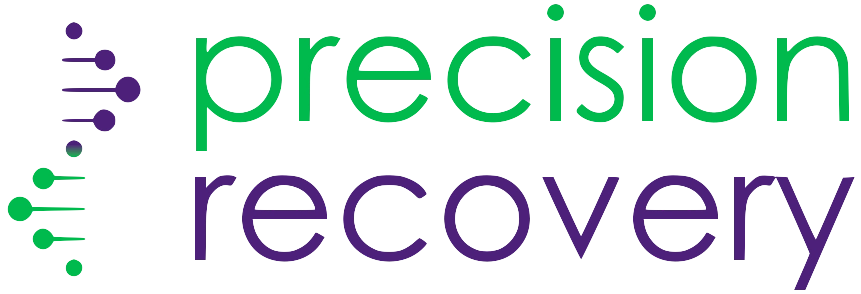
Our Approach
Your Journey to
Sobriety Starts Here
If you’re facing multiple felony DWI charges and feel like there’s no way out, Precision Recovery is here to help.
We understand the struggles of alcohol addiction and the toll it takes on your life.
Our program goes beyond just stopping harmful behaviors—it’s about creating real, lasting change.
A New Approach to Recovery
You’ve tried other programs, and they didn’t work.
That’s because most traditional recovery options don’t address the root causes of addiction.
At Precision Recovery, we take a different approach—one that truly works.
We combine innovative technology and individualized care to meet you where you are.
Whether you need help staying accountable, managing triggers, or building a strong foundation for sobriety, we’ll guide you every step of the way.
GARS Test: Unlocking the Science of Addiction

Understanding your addiction is the first step to overcoming it.
Our Genetic Addiction Risk Score (GARS) test uncovers genetic factors that contribute to addiction.
By analyzing how your brain processes dopamine, we can identify the root causes of your behavior and design a treatment plan that’s specific to your needs.
Precision Recovery is the only treatment center legally authorized to use the GARS test in court, making it a powerful tool for your recovery and legal defense.
Learn more about GARS testing in this video.
PRETAA System: Real-Time Support for Real Progress

Accountability is key to recovery, and our PRETAA system helps you stay on track. This app-based solution uses FDA-approved devices to monitor sleep, stress, and activity levels.
- 24/7 Monitoring: Get real-time support during moments of stress or vulnerability.
- Legal Defense: The system provides court-admissible proof of your progress.
- Ongoing Accountability: Weekly check-ins ensure you stay focused on your recovery goals.
With tools like the PRETAA system and GARS testing, Precision Recovery gives you more than just hope—it gives you a path to long-term sobriety and independence.
Take the first step today.
We’re here to help you rewrite your story.
Assessment and Evaluation Services
Recovery begins with understanding your unique challenges. At Precision Recovery, we take the time to evaluate every aspect of your situation to create a treatment plan.
Comprehensive Evaluations
We assess your medical history, psychological state, and behavioral patterns to understand your needs.
GARS Testing
Using the Genetic Addiction Risk Score (GARS) test, we uncover genetic predispositions to addiction, helping us target the root causes of harmful behaviors.
These insights form the foundation of a treatment plan that’s as unique as you are.
Learn MoreTherapy Services
Therapy is a vital part of the recovery process. At Precision Recovery, we offer a variety of therapy options designed to address emotional, psychological, and relational challenges.
Individual Therapy
In one-on-one sessions, our therapists help you identify triggers, set achievable goals, and develop healthier coping mechanisms.
Learn MoreGroup Therapy
Share your journey with others who understand. Group therapy provides a safe, supportive space to connect, share experiences, and learn from others.
Learn MoreFamily Therapy & Support
Addiction affects not just individuals but families too. We help families heal, rebuild trust, and create a supportive environment for their loved one’s recovery.
Learn MoreTreatment Options
We know recovery isn’t the same for everyone. That’s why we offer treatment options that adapt to your specific needs and circumstances.
Intensive Outpatient Program (IOP)
Balance recovery with work and family life. This structured program includes regular therapy, case management, and medical care, giving you the support you need without disrupting your daily responsibilities.
Learn MorePartial Hospitalization Program (PHP)
For those who need more intensive care, PHP offers daily therapy sessions, medical monitoring, and personalized support to help stabilize recovery and lay a strong foundation for long-term sobriety.
Learn MoreSubstance Abuse Counseling
Our expert counselors help you identify and address the patterns that drive substance use, empowering you with tools to prevent relapse.
Learn MoreAlcohol Addiction Treatment
Overcoming alcohol dependency can be challenging, but our evidence-based program gives you the skills and support to build a life of sobriety.
Learn MoreMedical Interventions
To ensure a well-rounded recovery, we integrate advanced medical treatments that address the physical and emotional effects of addiction.
Quantitative EEGs
We can measure progress and adjust treatment as needed by monitoring brain function.
Vitamin B IV Therapy
Addiction depletes the body of essential nutrients. IV therapy helps replenish what’s lost, promoting healing and reducing withdrawal symptoms.
Medication Compliance Tools
For some, medication is a critical part of recovery. Long-acting tools like Naltrexone pellets help manage cravings and reduce relapse risk.
Post-Acute Withdrawal Management
Recovery doesn’t stop when alcohol withdrawal symptoms fade. We provide ongoing medical support to help you manage lingering symptoms and maintain your progress.
Insurance: Making Care Accessible
We believe that everyone deserves access to quality care.
That’s why we work with many insurance providers to ensure our services are as affordable as possible.
Our team will guide you through your coverage options, so you can focus on recovery without the added stress of navigating insurance.
Why Choose Precision Recovery?
Precision Recovery isn’t just a treatment center—we’re your partner in lasting sobriety. Here’s how we stand apart:
Personalized Plans

Every treatment plan is created to meet your specific needs and goals.
Innovative Tools

From GARS testing to the PRETAA system, we use advanced technology to support accountability and success.
Whole-Person Care

We address addiction’s mental, physical, and emotional aspects to ensure lasting recovery.
Legal Support

We work closely with your legal team to help you avoid incarceration and provide evidence of your progress in court.

Start Your Recovery Journey Today
Facing a felony DWI charge or struggling with alcohol addiction doesn’t mean your life is over.
Precision Recovery offers a path to reclaim control and build a brighter future.
With personalized care, innovative tools, and a compassionate team, we’re here to help you take the first step toward lasting change.

